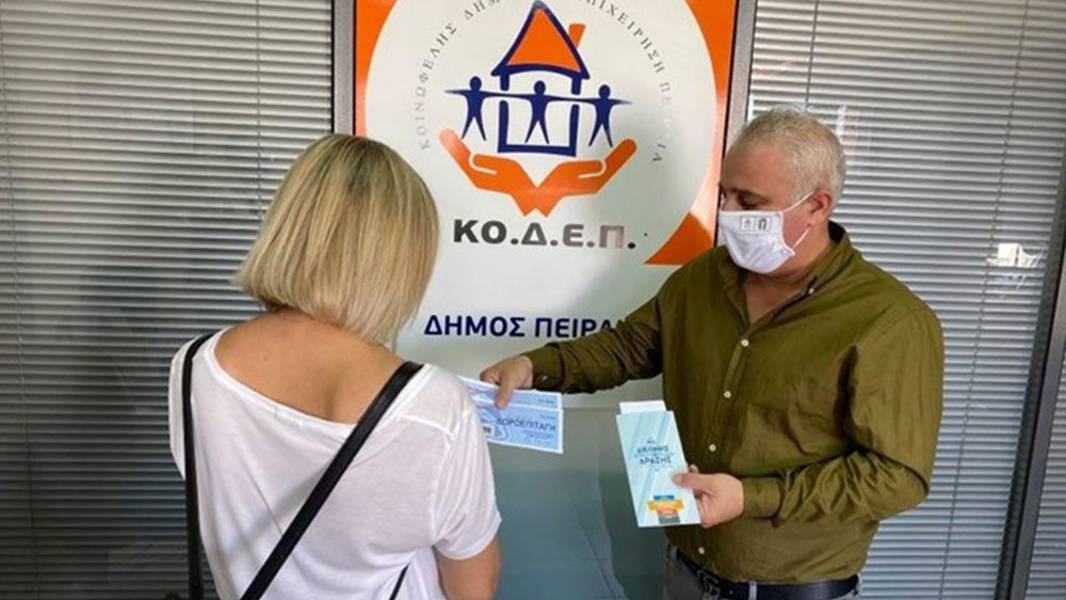
Meeting Food Need in Greece with Dignity
At the same time, an entirely different calamity, quieter and more insidious in many ways, was unfolding parallel to the acute health crisis: a socioeconomic crisis. It affected people who had already faced hardship before the outbreak of the pandemic, as well as people who suddenly lost jobs, who found themselves overnight without income, without the ability to meet their families’ basic needs like food.
Last April, when the Stavros Niarchos Foundation (SNF) announced its global COVID-19 relief initiative, the looming food crisis evident in Greece and elsewhere determined that helping ensure access to food would be one of the initiative’s primary focuses.
In Greece, SNF turned to organizations with which it had effective partnerships in the past through the Foundation’s Grants Against the Greek Crisis initiative. One of these organizations was Boroume, which SNF has supported when it was getting off the ground in 2012. Boroume aims to reduce food waste and fight hunger in Greece by saving food from donors and getting it, through charitable organizations, to people facing food insecurity. This model of redistribution allows Boroume to maximize how far each euro goes in getting food on plates. Over the years, it has created a number of programs as part of a holistic effort to eliminate food waste, from educational programs for the public and students to saving and redistributing food from every part of the production and distribution chain.
As part of SNF’s recent grant, Boroume compiled a list of the 200 largest municipalities in Greece, covering 90% of the country’s population. Starting in September, they offered families in need vouchers for a regional supermarket chain through the municipalities’ social service providers. Within the first three weeks of the program, more than two-thirds of vouchers had been redeemed, indicating that they had been effective at reaching those who would benefit most.
By the end of 2020, almost 10,000 families had received vouchers. Among those served so far are people who are out of work, older adults, people with disabilities, and large families.
Alongside Boroume’s effort to help ensure access to food, another grant in SNF’s COVID-19 relief initiative, a collaboration with the Greek Association of Municipalities (KEDE), helped move 600 tons of food to where it was needed across the country. In collaboration with the supermarket chain Metro SA, 300 “social groceries” provided legumes, pasta, oil, and baby food, among other staples, to thousands of people affected by the economic consequences of the pandemic.
The municipalities’ social service providers worked tirelessly to identify families in immediate need of assistance and to offer them support, either through the social groceries or through prepared hot meals offered directly to those who needed them.
From the northernmost part of the country to the southernmost, aid flowed where it was needed most, enabling the most affected families to meet their basic needs with dignity.
Many people and organizations contributed to this effort, each in their own way. The philanthropic sector (Boroume and SNF), the public sector (KEDE and the municipalities’ social services), and the private sector (Alfa-Beta Vassilopoulos and METRO SA) all joined forces to advance this shared effort. The supermarkets contributed in kind so that beneficiaries could take home more to their families, whether through the vouchers that were redeemed at Vassilopoulos, or through the products that Metro SA provided to social groceries in each municipality. SNF believes that collaboration can make a real difference in people’s lives—a much greater difference than isolated individual efforts.
And the solidarity and humanity this collaboration enables can manifest themselves in things as simple as a warm plate of food or a bag of groceries.